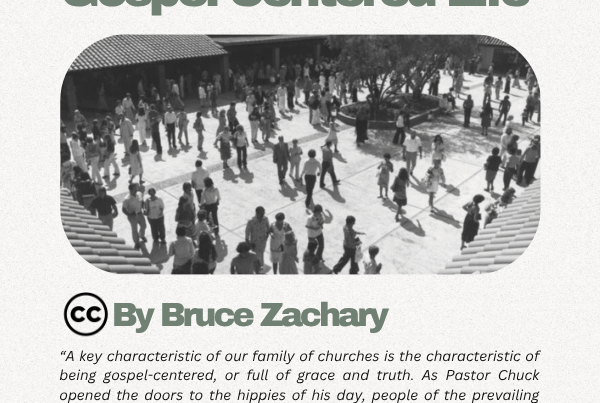
Pastor Jeff Jackson will be a workshop speaker at the 2017 CCCM Pastors & Leaders Conference on June 26-29. For more information, please visit the website.
The book of Daniel contains some of the most incredibly accurate, predictive prophecy found in the Bible. But that isn’t the only reason the true and living God included this amazing book in His written Word. The book also unpacks real, life-tested, essential truths and principles that can help equip a follower of Jesus to glorify God, regardless of the environment they live within or the government that God permits them to live under.
In fact, I some times refer to this unique book as the Daniel Manual for God-glorifying cross-cultural living.
The book of Daniel is the true story of Daniel and three other teenage Jewish boys that were specially selected and forcibly removed from their own people and their own country. They were resettled to the capitol city of the Babylonian empire, immersed into a three-year indoctrination program, and then assigned to serve in different capacities within the king’s palace for the good of the empire.
The first point of conflict with a government-approved cultural practice came soon after their arrival.
The three-year intensive indoctrination program that was designed to produce highly educated and kingdom-perpetuating monarchy officials, included the royal diet that the king himself and his closest advisors had the pleasure of eating. The king and his advisors believed that since they were brilliant and wise and their diet helped contribute to them being so, then by graciously providing their trainees with the same diet, they would increase the likelihood that these future leaders would also be brilliant and wise and as useful as possible for the good of the kingdom.
When Daniel and his friends were told about the diet they would be required to eat, they immediately recognized that the diet included food and drink that their God had forbidden them and their people to eat. Daniel and his friends resolved in their hearts and minds that they would not eat the diet that was required, regardless of the consequences of that decision.
Daniel then humbly asked their program overseer for permission to not eat the required diet and told him the reason why. He wanted the overseer to know that by eating the prescribed diet, he and his friends would be defiling themselves in the eyes of their God. He requested the overseer to permit them to eat an alternative diet for 10 days and invited him to compare the results produced in them, with the results produced in those that ate the required diet. The overseer agreed, and at the end of the 10 days, discovered Daniel and his friends were in better shape to accomplish the end game purposes of the diet, granting them freedom to eat in accordance with what their God dictated for them to eat.
The bottom line is that because Daniel took the time to figure out what the ultimate purpose of the specific practice was, he was able to offer an alternative that was actually more effective at accomplishing the end game purpose than the practice that already existed.
If the cultural environment we find ourselves in, and the laws of the government we live under continue in the direction that they appear to be moving…
Here are a few cross-cultural ministry principles derived from this incident that I believe God wants us to learn from this specific incident:
1. Our relationship with God and obedience to His clearly understood commands must be our highest priority, regardless of the consequences.
2. When we either recognize or are required by law to participate in a specific, cultural practice that is a violation of God’s will, we must not forget that the majority of the people we live among DO NOT have the same conviction about the practice.
3. We must take the time to understand the end game purpose that the ungodly-specific cultural practice was created to produce, and how it expresses a fundamental value that those in that culture hold.
4. We must trust that with the wisdom and understanding God will give to us, it is possible to create and offer an alternative that BOTH respects the endgame purpose/foundational value that the ungodly-specific cultural practice was created to produce, AND that may actually accomplish it in a more effective manner.
5. We should be confident that the interaction and the relationships we have with those who are not His people, are by His design, for His glory and for the ultimate good of those He places us in contact with.
6. We need to offer them the alternative cultural practice He has shown us, in a humble and loving way that avoids as much as possible, bringing harmful consequences on those who don’t yet know Him.
7. We must be mature enough to know that even though a few people will choose the alternative He has revealed to us, and a comparison will be made with the existing practice, many will still be unwilling to choose the alternative we live by and invited others to take.
As a final example, when these Biblically-based, cross-cultural missionary principles are applied to the accepted cultural practice of abortion, the more than 2,500 Crisis Pregnancy Centers, (compared with 1,700 abortion providers), that now exist in the U.S. are what is produced.









